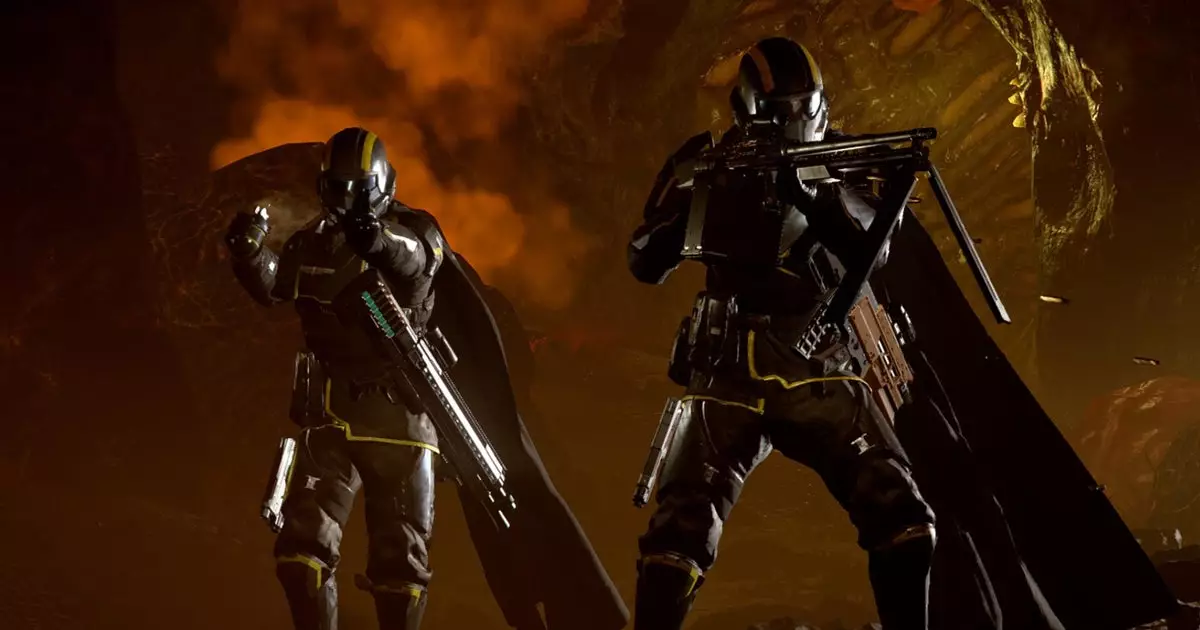In the fast-paced world of video game development, the ability to adapt swiftly to unforeseen issues is a hallmark of truly committed studios. Arrowhead has exemplified this principle with their recent decision to temporarily remove the Rupture Strain enemies from Helldivers 2. Rather than ignoring the problems or forcing a hasty fix, the developers opted for a strategic pause, demonstrating a commendable commitment to quality over expediency. This move underscores an essential understanding: games are live environments, and player experience must always take precedence. It also reveals a studio’s willingness to own up to complex problems, even when it means sidelining content that players may enjoy. The choice to withdraw the problematic units signals a firm stance that balancing challenge with fairness is fundamental to a healthy gaming ecosystem.
Balancing Challenge and Fairness in Gameplay
One of the key issues highlighted by Arrowhead pertains to the Rupture Warriors—aggressive enemies whose ability to unexpectedly burst out of the earth and eliminate players caught many off-guard. Such mechanics, especially when unpredictable, compromise the fairness and enjoyment that players seek. Arrowhead’s initial patch attempts to address this, but the consequences, arguably, left the game more unbalanced than before. When developers introduce tough enemies, it’s crucial they do so with precision, ensuring that the challenge feels earned and not frustratingly unfair. The studio’s acknowledgment that the enemies’ functionality was not as intended and their subsequent decision to remove them temporarily points to a nuanced understanding: difficulty should foster engagement, not rage. By pulling the Rupture Strain temporarily, Arrowhead is prioritizing long-term player satisfaction over short-term thrill, a model that should serve as a blueprint for future updates in dynamic multiplayer environments.
The Risks and Rewards of Post-Launch Interventions
The challenge for any game developer post-launch is to strike a balance between fixing bugs, maintaining balance, and not alienating players with overcorrections. Arrowhead’s situation illustrates this well. Their quick action to remove problematic enemies—particularly those whose attacks became disproportionately disruptive—reflects a proactive approach. However, this also raises questions about the development process: how proactive can and should developers be in preempting such issues? While players often point to bugs and overpowered foes, developers face an uphill battle in predicting every mechanic’s replication under varied network conditions. Arrowhead’s transparency about the network issues causing the Rupture Warriors’ unforeseen behavior underscores the complex technical hurdles involved in live game balancing. Yet, their willingness to adjust course swiftly suggests an understanding that customer trust hinges on transparency and decisive action.
The Future of Helldivers 2 and Developer Accountability
The larger narrative here is not solely about fixing a problematic enemy but about fostering a culture that values continuous improvement. Arrowhead’s decision to temporarily disable the Rupture Strain and dedicate five weeks to refining their behavior demonstrates tactical humility. It’s an acknowledgment that perfect balance in a multiplayer shooter is an ongoing process, one requiring patience, data collection, and iterative adjustments. This approach may set a new standard in early-access or live-service gaming, where transparency and responsiveness fuel player loyalty. Moreover, the studio’s efforts epitomize a developer’s responsibility to prioritize a positive community experience over expedient releases. By openly communicating with their audience and showing willingness to backtrack when necessary, they reinforce a narrative of trust—an invaluable asset in today’s competitive gaming landscape.
Instead of viewing these setbacks as mere flaws, we should recognize them as pivotal moments where developers demonstrate resilience and commitment. Arrowhead’s handling of the Rupture Strain debacle exemplifies an enlightened approach: confront problems head-on, communicate honestly, and prioritize long-term gameplay integrity over superficial fixes. As the studio works to iron out these issues, gamers should look at this not as a sign of failure but as proof that quality assurance and developer accountability are alive and well in the gaming industry. This proactive stance paves the way for a more informed, patient, and engaged player community—one that appreciates creators who are willing to listen, learn, and improve.

